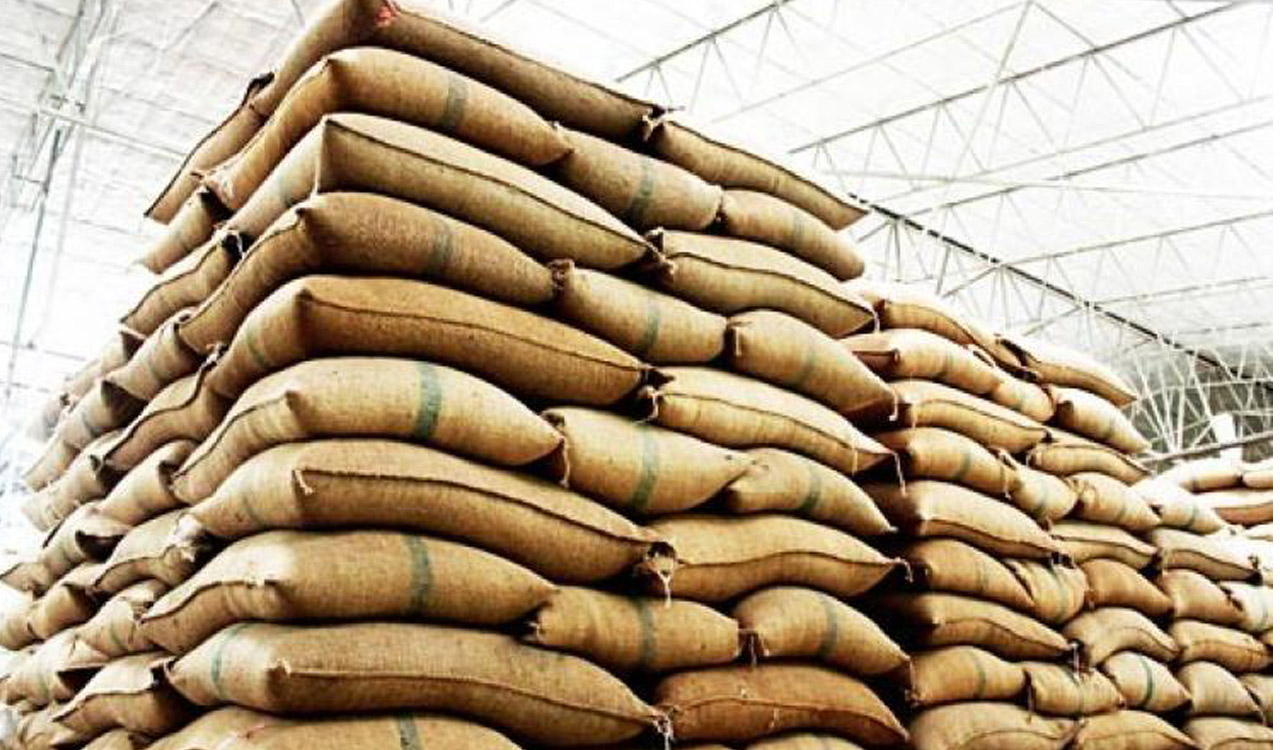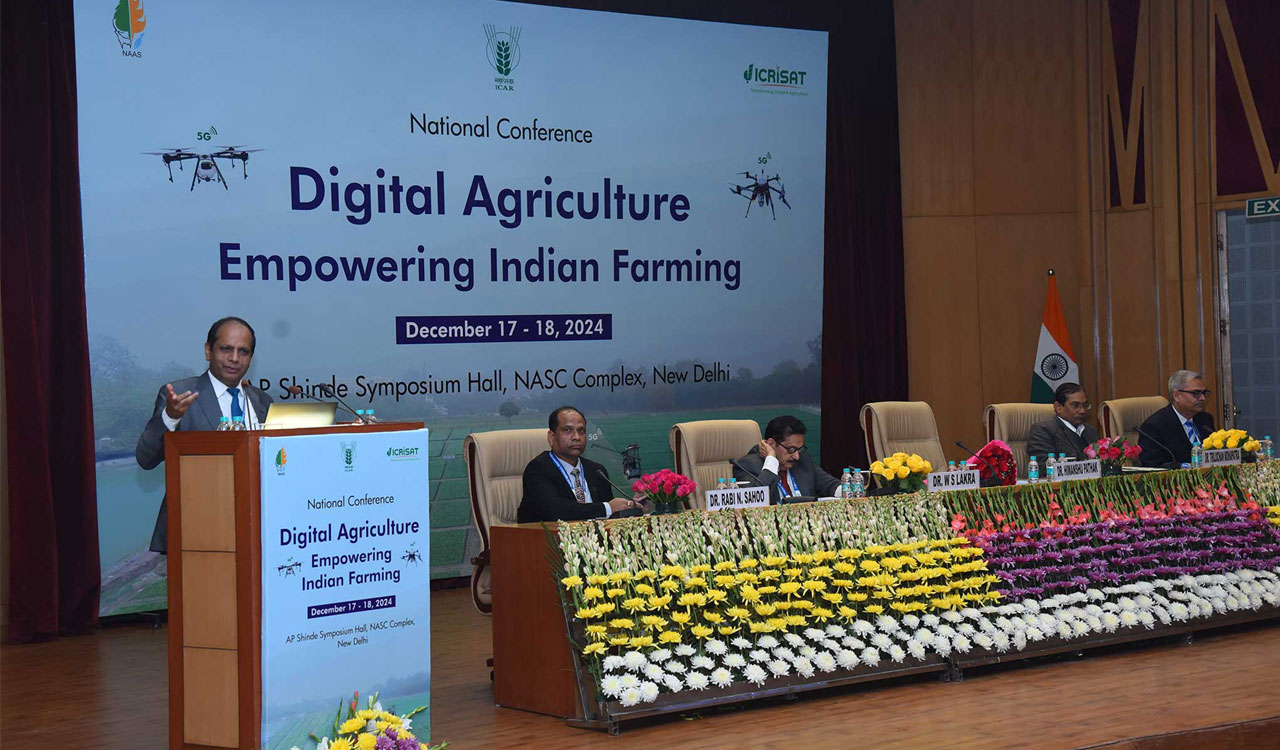Corporate feast at farmers’ cost
Instead of abolishing it, the government should provide legal backing to Minimum Support Price to help farmers

The recent farm Bills, which received President’s assent, are amongst the various policy decisions to revive the sagging economy. These are crucial laws as they affect the livelihood of millions of farmers. The government claims these are historic since they give farmers the freedom to sell their produce to anyone anywhere in the country and will create a system in which farmers and traders can sell and purchase outside the mandis. It also claims they will encourage intra-State trade as well as cut transportation cost and enable farmers to engage with agri-business companies, retailers and export services, thereby connecting farmers to modern technology.
But in reality, it is a distant dream, especially for small and marginal farmers, as the government tries to corporatise farming in the name of agricultural reform. The new laws neither have any clause on regulation outside the mandis nor do they have any grievance redressal mechanism to address farmers’ disputes related to negotiable trade.
Ever since it came to power, the NDA government is appeasing corporate giants and has prioritised corporates to invest money in the economy. The farm Acts too are no exception. They give exclusive rights to private companies to determine the price of farm produce. In such a scenario, how will these address employability and income of small and marginal farmers, who account for around 86% of India’s farmers?
Moreover, there is no mention of the assurance of protection of small and marginal farmers’ interest and livelihood. Neither do they mention what would be the MSP for poor farmers, which is key to their survival. Given this backdrop, how will such a policy help in doubling their income by 2022, as promised by the Prime Minister in 2016?

No Nutritional Security
The new laws will lead to farmers losing out on guaranteed purchase price for their produce while large corporations benefit. The end of the Minimum Support Price (MSP) system would reduce the benefits of small and marginal farmers as companies determine the price.
The removal of essential items such as cereals and pulses from the list of essential commodities means giants such as Walmart and Reliance will call the shots. These companies have their price benchmark to maintain a monopoly over essential commodities, which automatically will create chaos in the market, especially for below poverty line people, who cannot afford such commodities for their daily living. Therefore, nutritional security of millions of people will be hit.
The MSP is a tool that guarantees farmers, prior to the sowing season, a fair fixed price for their crop to encourage higher investment and production in agriculture. The system of MSP acts as a mechanism to control a sharp fall and rise in the price of any crops, which helps keep a floor price and not let the prices fall below a certain point.
All three laws do not mention any clause that would make procurement below the MSP, illegal. Agriculturally prosperous States like Haryana and Punjab will be worst affected due to the loss of MSP. Commission agents will also be hit hard as the government dismantles the mandis.
State’s Right
To reduce middlemen/intermediaries, the government of India had introduced the APMC Act (Agricultural Produce Market Committee) in 1968. It operates under the State governments. Since agricultural market is a State-owned subject, the State has exclusive rights to reform it. The State governments also regulate notified agricultural produce and livestock. Therefore, the APMC is a government-regulated market, which discovers the price of the various farm produce and limits intermediaries to enable better distribution of farmers’ produce with a fair price for the producer as well as for lower socio-economic group people.
No doubt, the APMC has its drawbacks. For instance, over the years APMCs have issued licences to various traders, which created a cartel system. But the dismantling of the APMC also means that the State governments will lose the huge revenue that it gets as fee at the mandis. This revenue is used for the development of agriculture and rural infrastructure.
Under the Farmers’ Produce Trade and Commerce (Promotion and Facilitation) Act, farmers will lose the MSP and other protections they hitherto received from successive governments. Exclusion of existing mandis established under the APMC Act from the definition of trade area will confine the APMC mandis to their physical boundaries, and give a free hand to big corporate buyers.
Genuine Fears
Once commission agents are removed from the picture, the Act will accelerate the creation of a monopoly of the corporates. There are genuine fears that the Act would cut the bargaining power of farmers with corporate giants, as most small and marginal farmers will be unable to understand the terms and conditions of trade between private companies and farmers, and hence, they will be more vulnerable.
Instead of these reforms, the government should give legal backing to MSPs, as recommended by the Commission for Agricultural Costs and Prices, and not abolish them as the Acts envisage. There is a need for proper reforms in the existing APMC structure using modern digital technology. The government must work towards providing more money into the hands of farmers as this has a three-fold multiplier effect on the economy – increase the purchasing power of farmers, create more rural demand which in turn will lead to more consumption and accelerate growth.
(The author is a Research Associate at ICAR- National Institute of Agricultural Economics and Policy Research (NIAP), New Delhi. Views expressed are personal)
Now you can get handpicked stories from Telangana Today on Telegram everyday. Click the link to subscribe.
Click to follow Telangana Today Facebook page and Twitter .
Related News
-
Telangana techie loses Rs 4.15 lakh to online gold trading fraud
4 mins ago -
Hyderabad: Couple working as house help at doctor’s residence held for theft
19 mins ago -
Hyderabad auto driver foils attempt to kidnap young woman, five held
1 hour ago -
Haiti gang attack on journalists covering hospital reopening leaves 2 dead, several wounded
2 hours ago -
21 dead as Mozambique erupts in violence after election court ruling
3 hours ago -
Cartoon Today on December 25, 2024
10 hours ago -
Sandhya Theatre stampede case: Allu Arjun questioned for 3 hours by Chikkadpallly police
11 hours ago -
Telangana: TRSMA pitches for 15% school fee hike and Right to Fee Collection Act
11 hours ago




